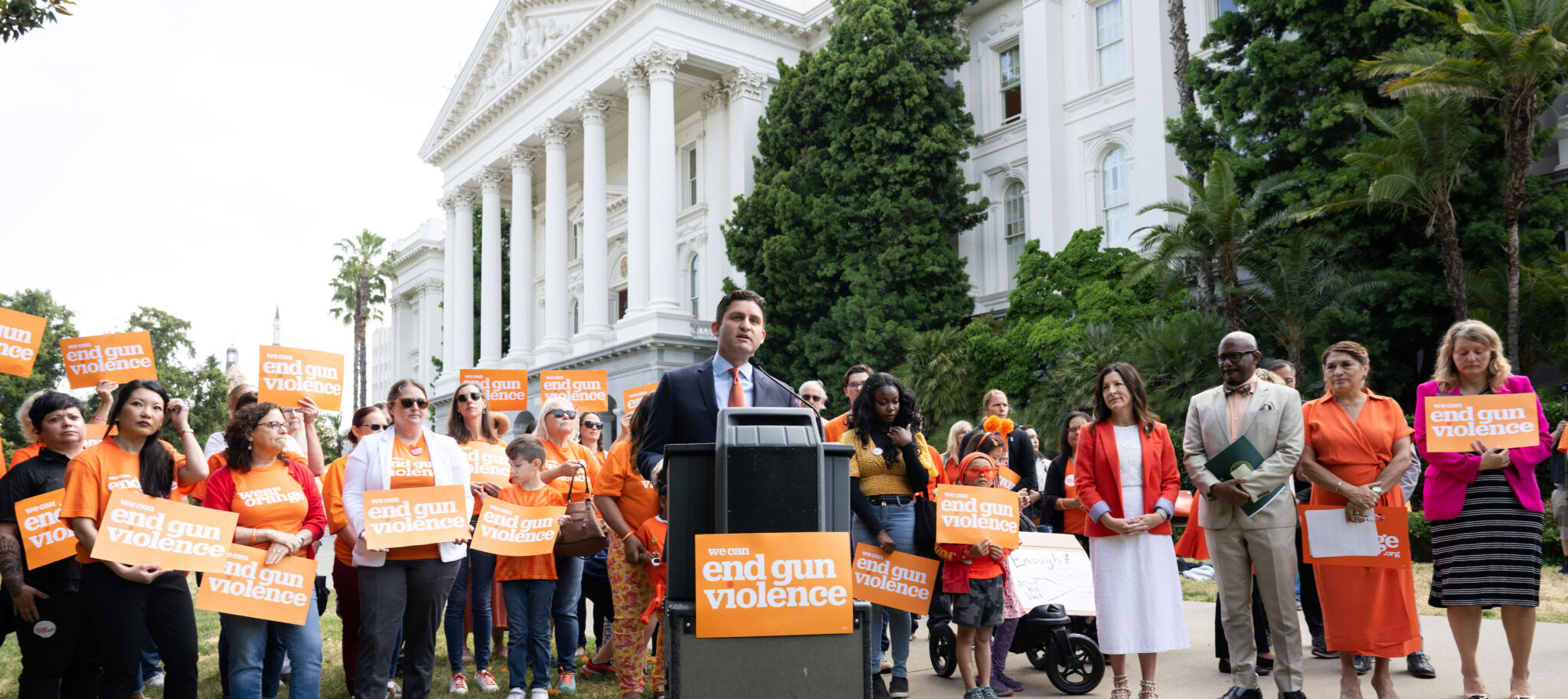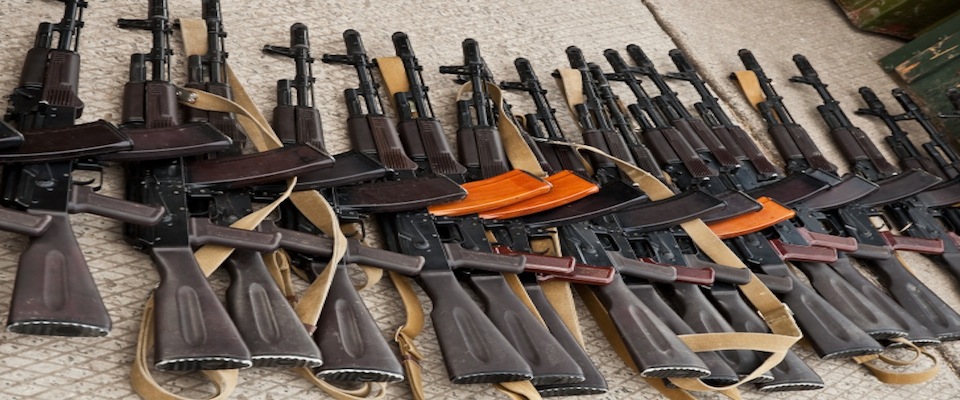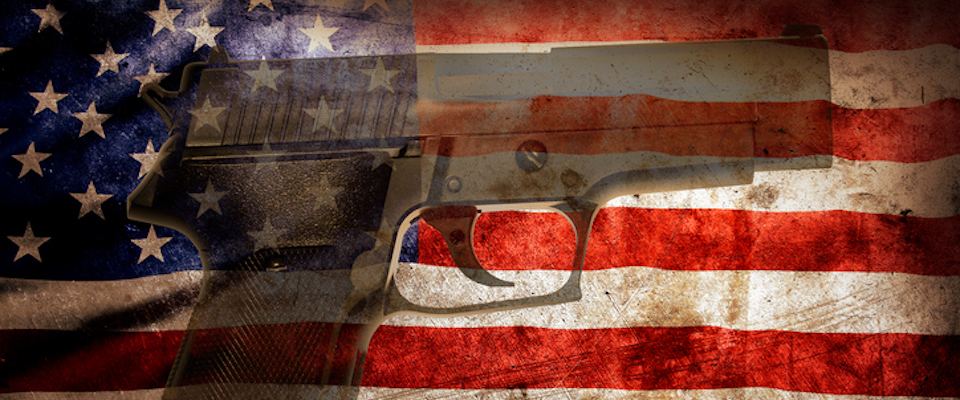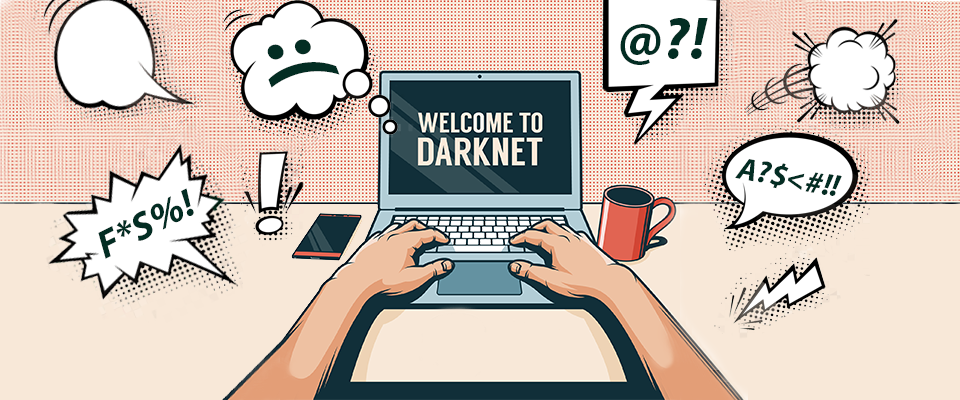In late June, Alexander Ibarra took to the podium before the California Senate Governance and Finance Committee. Sporting a red cardigan and collared button-up, he looked older than his 12 years as he leaned into the mic, his hands clasped behind his back.
“I joined the gun violence prevention movement because of school shootings like Uvalde and Parkland. Shootings that left me terrified to go to school. Shootings that left me worried that I was going to be the next headline,” the Oakland 9th grader told the senators emphatically. “I am here today pleading for a change.”
Ibarra is part of a broad coalition of politicians, activists, and civilians who have come out loudly in support of a new gun violence prevention bill, spearheaded by two Berkeley graduates, that is poised to make California, and national, history.
“I think this would be a very big deal if it were to pass,” said Assemblymember Jesse Gabriel, ’04, who serves as chair of the state’s Gun Violence Prevention Working Group and has long been an advocate for stronger gun control measures. “It’s going to generate hundreds of millions of dollars every single year to fund programs that have been proven through a lot of research to make a real difference and save lives.”
Assembly Bill 28, which narrowly passed the state senate on Sept. 7, would levy an 11 percent tax on retail sales of firearms and ammunition, manufacturers, and vendors, the proceeds of which would fund gun violence prevention efforts. After years of hard work and several failed attempts, advocates are hopeful that the latest version of the bill will finally become law this fall, positioning California as a leader in gun control and setting a new precedent for the state-sponsored fight against firearms-related violence.
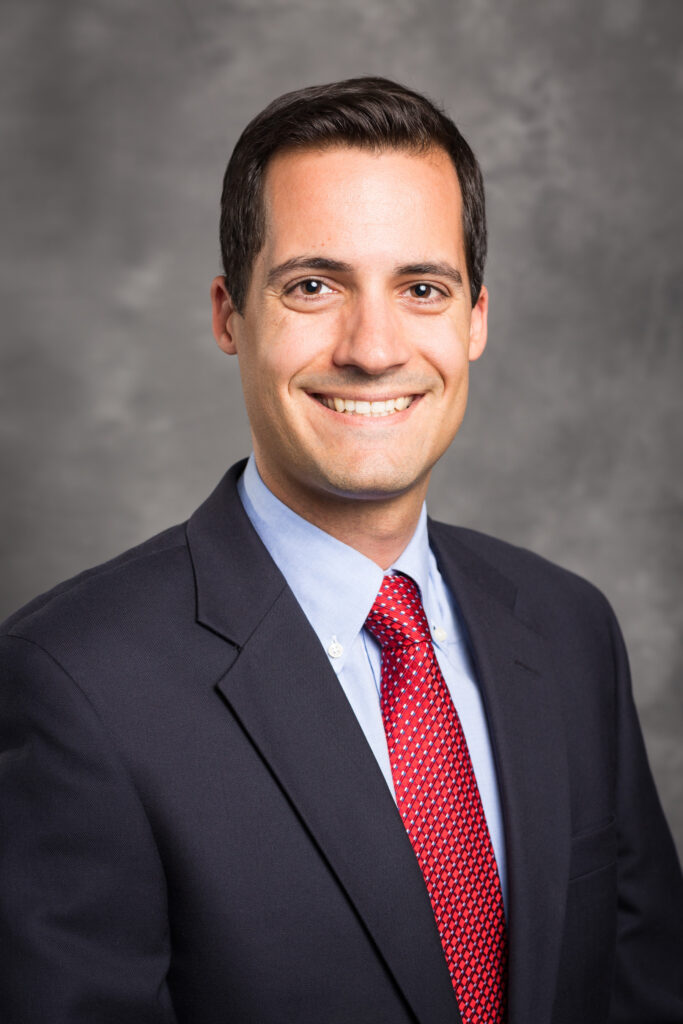
Mike McLively, ’06, who’s been championing the bill along with co-authors and assembly members Gabriel and Kevin McCarty and legislative assistant Dana Alpert ’19, was elated by the latest news.
“We did it—with zero votes to spare,” he wrote in an email after the senate vote. A gun violence expert, McLively currently serves as policy director and founder of the Giffords Center for Violence Intervention. “I’m weeping,” he added, laughing.
As an excise tax, the new legislation would place the financial burden on the gun industry, rather than consumers. The bill is expected to pull in roughly $159 million in tax revenue in the coming year—all of which would go directly towards programs combating gun violence.
Firearm sales and rates of gun violence reached historic highs during the pandemic, locally and nationwide. In California, the sale of handguns alone increased by 66 percent from 2019 to 2020; that same year, sales peaked with over 22 million guns purchased nationwide. While the latest research hasn’t been able to draw a clear link between surges in pandemic gun sales and gun violence, both Oakland and Los Angeles recorded more gun violence in 2021 than in any year since 2007.
“We kept reading articles about like, ‘record gun profits, record gun sales,’ at a time when we’ve also had record increases in gun homicide and suicide in California,” McLively said. “It makes sense to us that some of those profits should be diverted to programs that we know will help reduce violence and mitigate some of those harms.”
Previous attempts to tax the firearms and ammunition industry have fallen short, including at least six in the past decade. Just last year, a version of the bill died on the Senate floor, three votes short of the required two-thirds majority.
But with passing votes from both the state assembly and senate, Gabriel is optimistic that this iteration of the bill will make it through, leading to “tangible impacts” on gun violence prevention efforts as soon as next year.
“Immediately, you’re going to see hundreds of millions of dollars flow to programs, local governments, school districts,” he said.
Starting July 1, 2024, tax funds would be deposited in the state’s Gun Violence Prevention and School Safety Fund and distributed to intervention programs for everything from hiring more personnel to educating communities about firearm safety and supporting victims of gun violence. While the majority of the revenue would go to the California Violence Intervention and Prevention (CalVIP), what McLively called the “state’s main investment in community-based efforts to reduce violence,” schools would also receive a significant chunk—some $50 million—for safety and mental health services.
Up to this point, CalVIP has had to lobby the state legislature every year for operating revenue. “It’s going to be really important that we just have this consistent funding stream,” McLively said.
As proponents are quick to point out, this wouldn’t be the first excise tax levied on the firearms industry. Since 1937, the federal government has collected roughly 11 percent of annual gun and ammunition sales revenue nationwide, funds that are put towards wildlife conservation and hunter safety programs.
Taxing manufacturers to offset the harms caused by their products also has important precedents in U.S. history. State and federal governments have long levied taxes on the tobacco industry, the revenue from which is largely used to fund tobacco-related health education programs, disease research, and healthcare programs. By funding such efforts, McLively said, tobacco excise taxes have reduced the rates of smoking nationwide.
So, they wondered, why not test the same tax model on the gun industry?
“That has been very successful,” McLively said. “And we’re basically just taking that model and applying it to a different public health problem.”
The bill is not without its critics, however. The firearms industry, for its part, has argued that the tax would place an undue burden on lawful gun manufacturers and owners. When it comes to funding gun violence prevention efforts, Gun Owners of California Executive Director Sam Paredes urged the senators, all residents should bear financial responsibility.
Meanwhile, pro-gun groups worry that the tax would trickle down to buyers, a concern that bill proponents largely shrug off.
“There’s triple digit increases in sales and profitability for the industry,” McLively said. Whether consumer costs spike to subsidize the new tax is completely up to those same manufacturers and retail sellers.
“They’ll likely pass it along,” he said of the industry leaders. “But I think it’s an important distinction—they’re choosing to do that.”
Within the political sphere, McLively said the biggest challenge has been appealing to moderate Democrats who typically reject tax increases. But even they have come around; in September, of those legislators who voted, only one Democratic senator and one Democratic assembly member opposed the bill.
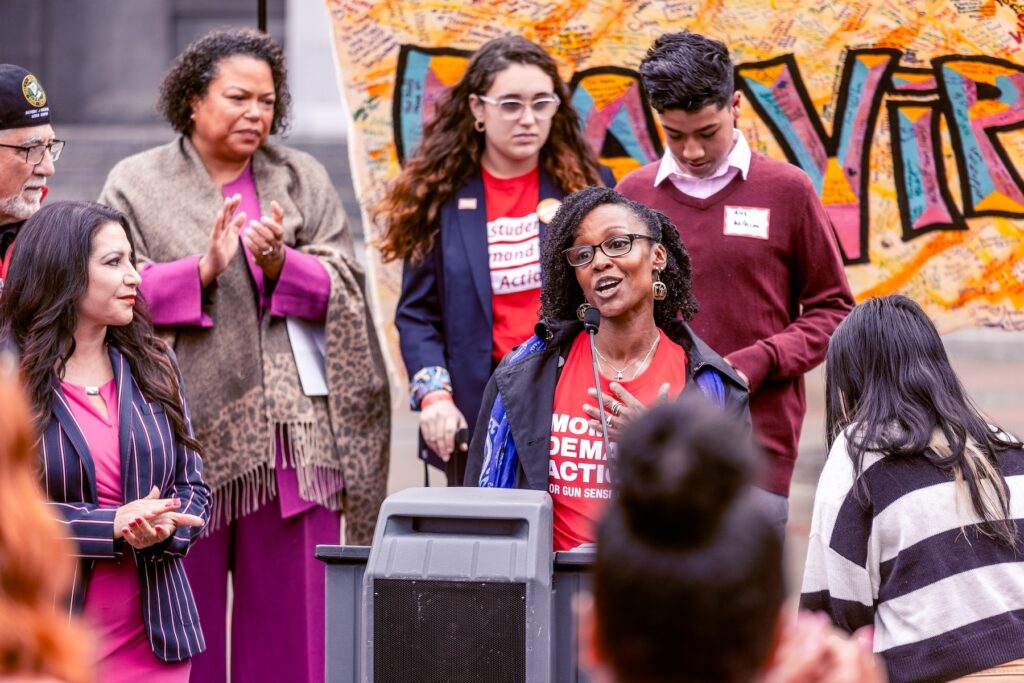
Ultimately, support for AB28 has come from both sides of the aisle, which Gabriel attributed to a strong grassroots effort and the growing, non-partisan fear among his colleagues raising kids in the wake of countless school shootings.
The proposed legislation has arrived at the homestretch—Governor Gavin Newsom’s desk, where advocates are optimistic it will, finally, pass. Far from celebrating, however, activists at Giffords have organized a rally and march on the steps of the Capitol as a final show of support to the governor. (Newsom has until October 14 to sign or veto the bill.)
“Part of the reason we decided to take on this issue is we just got sick of the inaction in Washington DC,” said Gabriel, who will attend Thursday’s rally. “Thoughts and prayers are not going to keep our kids safe.”











